Local elections 2023: When are they and who can vote?
Voters in parts of England and in Northern Ireland will be able to elect new councillors in May. …
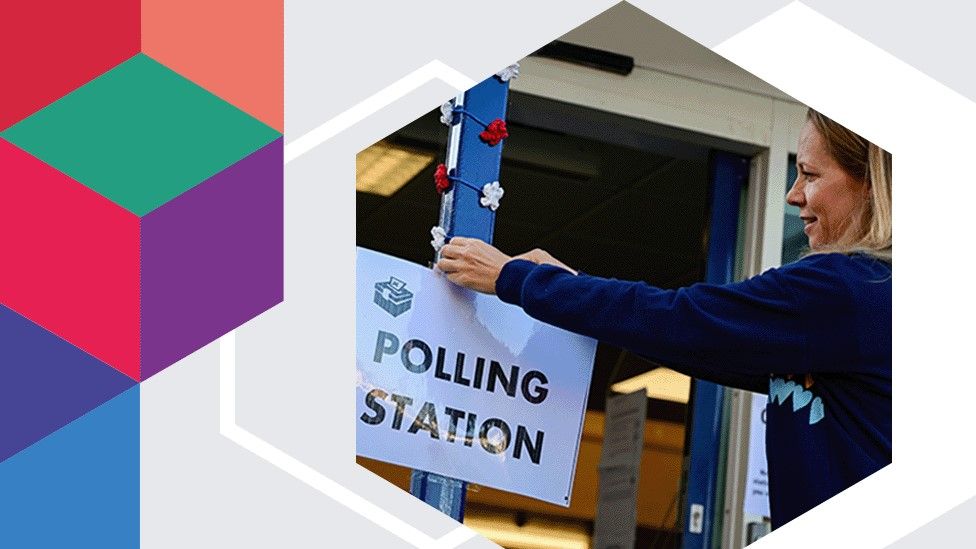
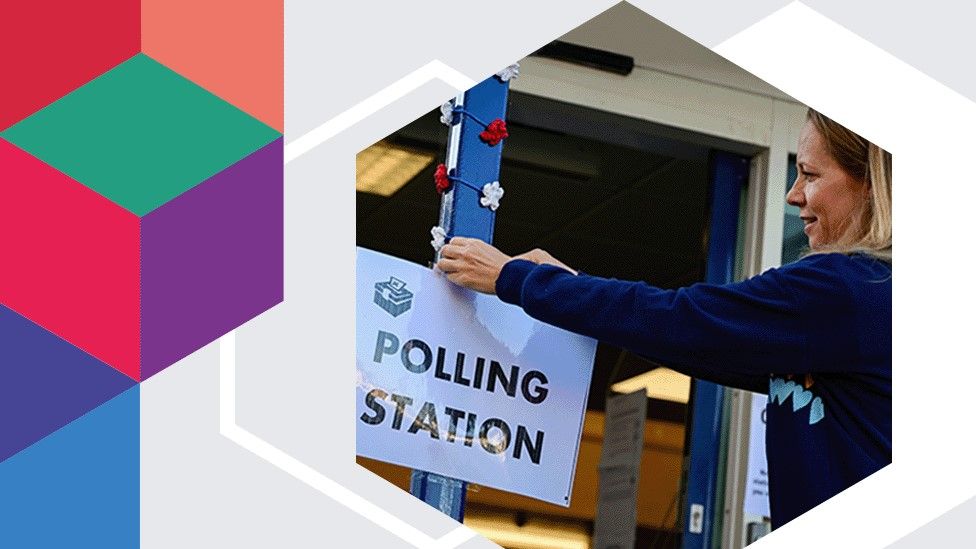
Voters in some parts of England and Northern Ireland will be able to choose new councillors in May.
The elections decide who runs local services – such as schools, libraries and bin collections – across 241 councils.
In England, the deadline for registering to vote in person or by proxy is 23:59 BST on 17 April, or 17:00 BST on 18 April to request a postal vote.
Where and when are elections taking place?
On 4 May, more than 8,000 seats will be contested at 230 councils across England.
Mayoral elections are also taking place in Bedford, Leicester, Mansfield and Middlesbrough.
In Northern Ireland, 11 council elections are being held on 18 May.
<![CDATA[]]>
How can I vote?
- in person at your local polling station
- by postal vote
- by nominating a proxy to vote on your behalf
You can find your local polling station here.
Voters (and proxies) must be:
- aged 18 or over
- registered at an address in the area where they want to vote
- a British citizen, an Irish or EU citizen or eligible Commonwealth citizen
- not legally excluded from voting
Voters usually have one vote for each available seat in an election area (known as a ward or division). Large wards may have several seats.
Whoever receives the most votes wins.
Northern Ireland councils use the single transferable vote (STV) system – where voters rank candidates in order of preference.
Different voting systems are used in different councils so voters should read their ballot paper carefully.
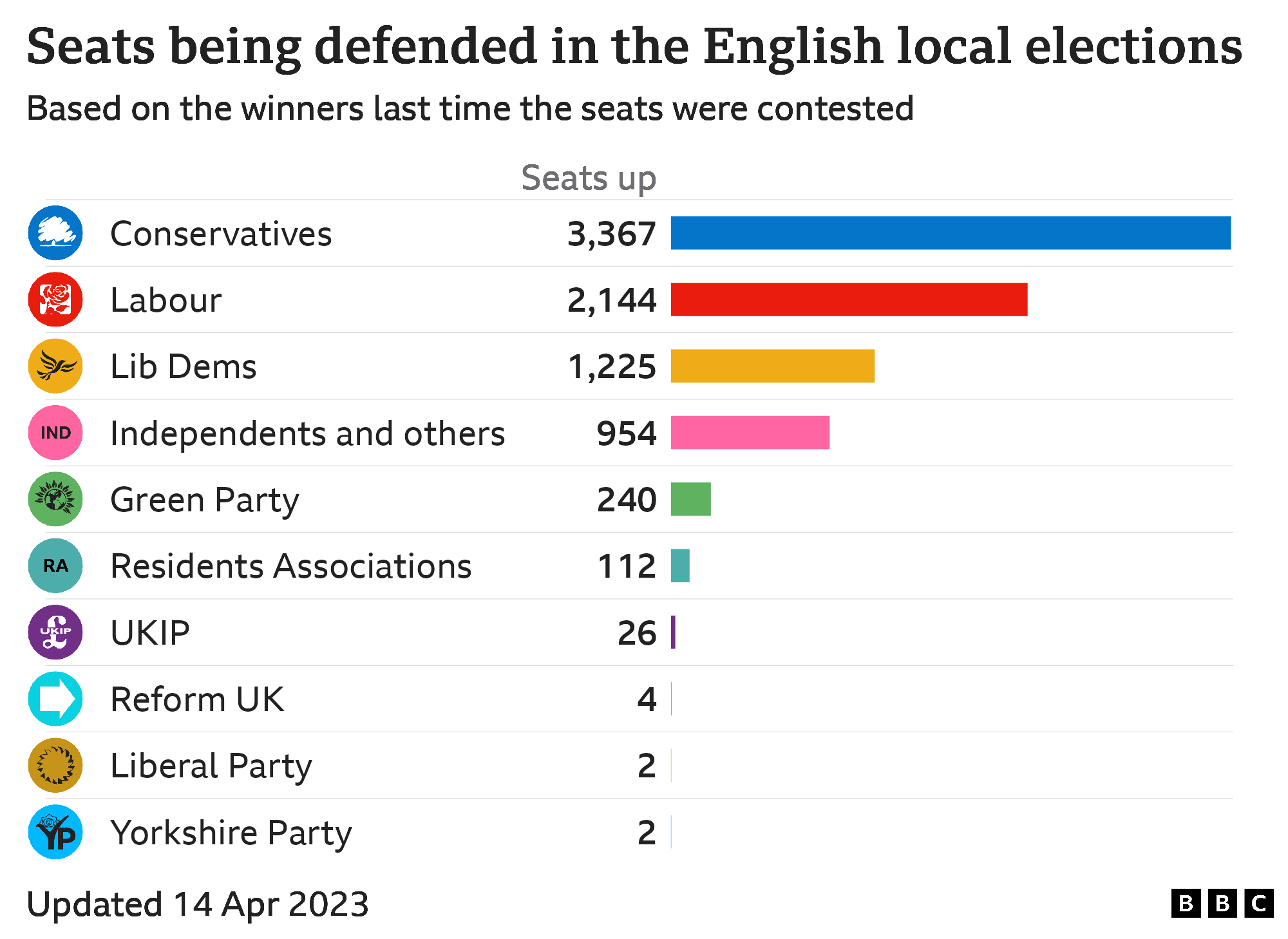
When do I need to register to vote by?
The deadline to request a postal vote is 17:00 BST on 18 April.
If you miss the deadline to nominate a proxy but cannot vote in person, you may be able to apply for an emergency proxy vote. You can do this until 17:00 on polling day.
In Northern Ireland, the deadline to register to vote by post or proxy is 26 April; to vote in person you must register by 28 April.
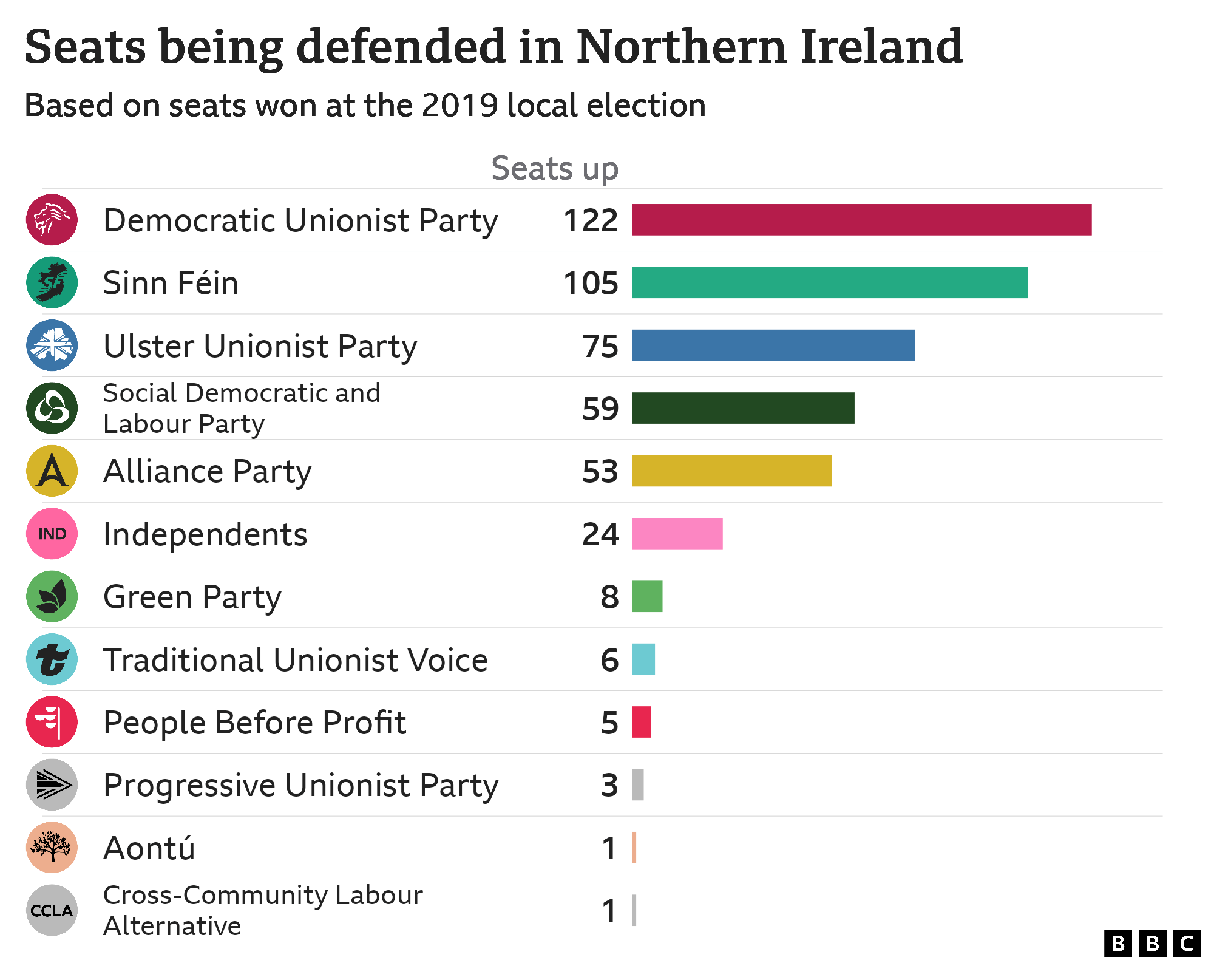
Will I need to bring ID to vote?
From 4 May 2023, voters in England must show photo ID to vote in person in most elections. You do not need to bring the card that lists your polling station.
There are 22 forms of valid ID including:
- passports
- driving licences
- Older or Disabled Person’s bus passes
- Oyster 60+ cards
The estimated two million people without an accepted form of ID can sign up for a free Voter Authority Certificate instead. Applications close on 25 April at 17:00 BST.
However, government data shows only 58,241 people had applied by 12 April.
Voter ID has been required in Northern Ireland since 2007.
Watch: Ione Wells explains the new rules for voting in England, in a minute
Can I bring my pet or my children?
Animals – apart from assistance dogs – are not usually allowed in polling stations.
However, other dogs can be admitted to polling stations at the discretion of the local authority.
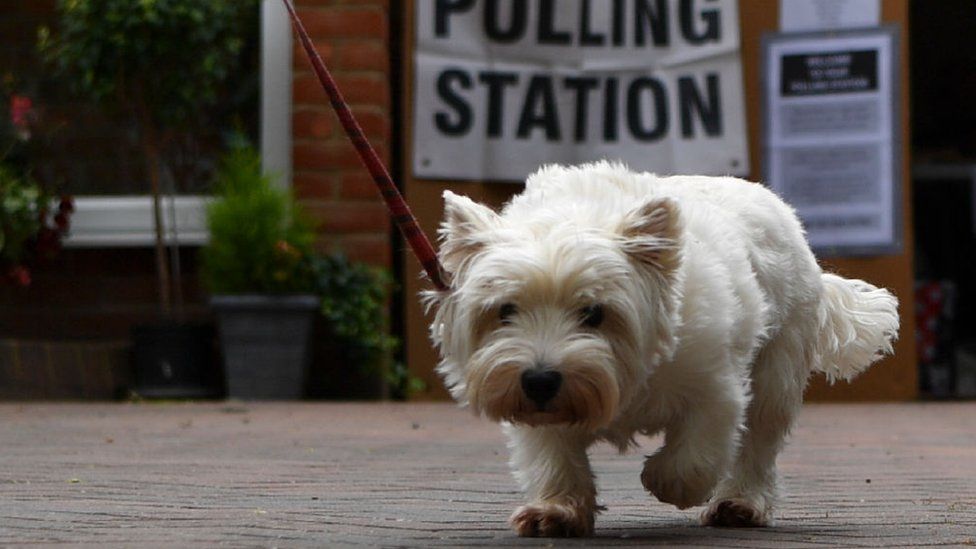 Image source, Getty Images
Image source, Getty ImagesVoters are encouraged to bring children to polling stations to help educate them about democracy – but they must not mark the ballot paper.
What do local councils do?
Local councils are responsible for many public services, including:
- providing care for the elderly and disabled
- schools
- fixing potholes on some roads
- collecting rubbish
Northern Ireland councils have fewer responsibilities. They do not run education, road-building or housing, but do collect taxes and maintain some local services.
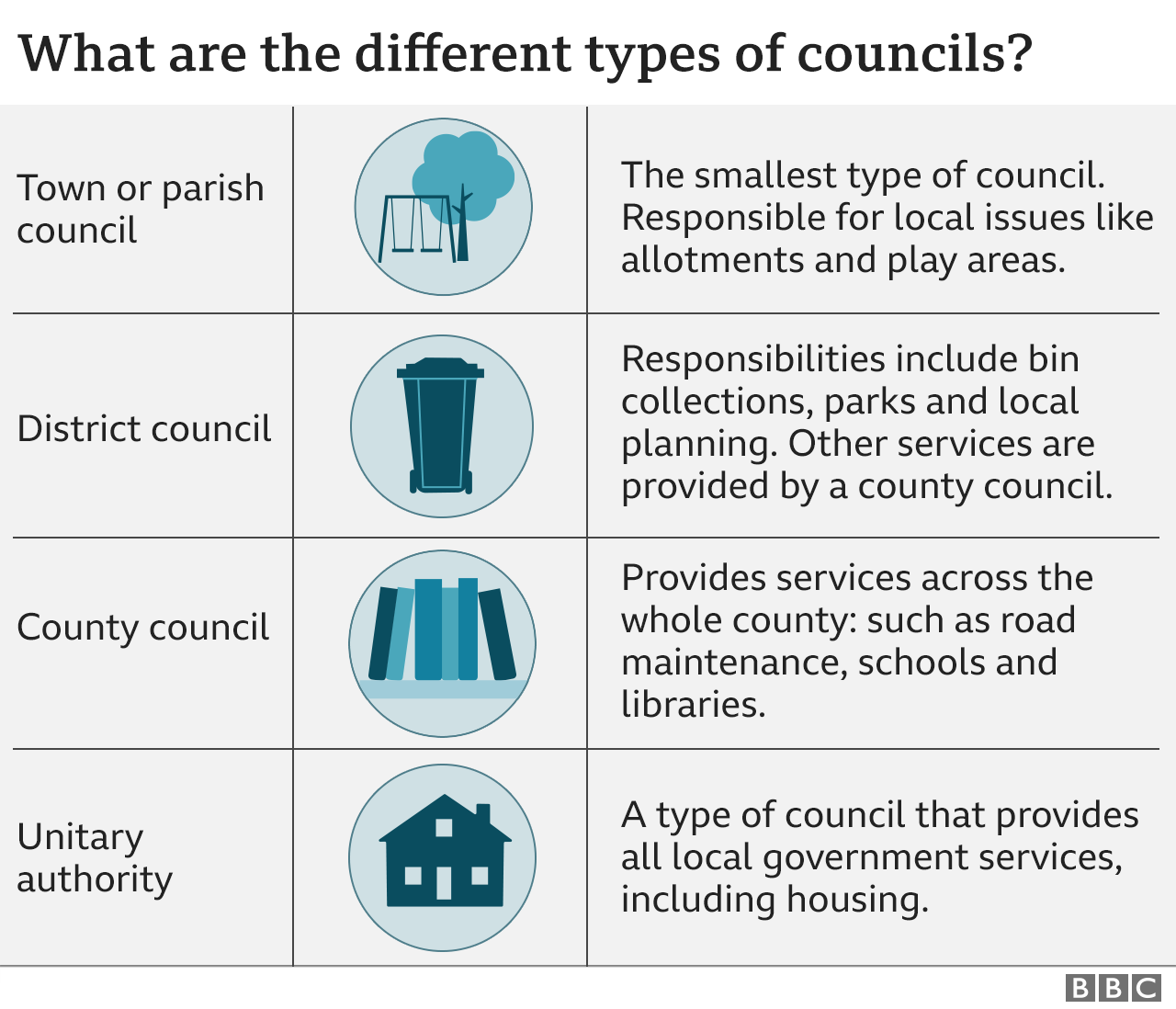
Why do these elections matter?
They decide who is in charge of local public services – and how they are run.
Local issues, such as contentious planning decisions, the state of roads or rubbish collection, often decide council elections.
Many services provided by councils have been disrupted by recent strikes.
Councils have seen long-term cuts to local government funding dating back to 2010, which followed the global financial crisis.
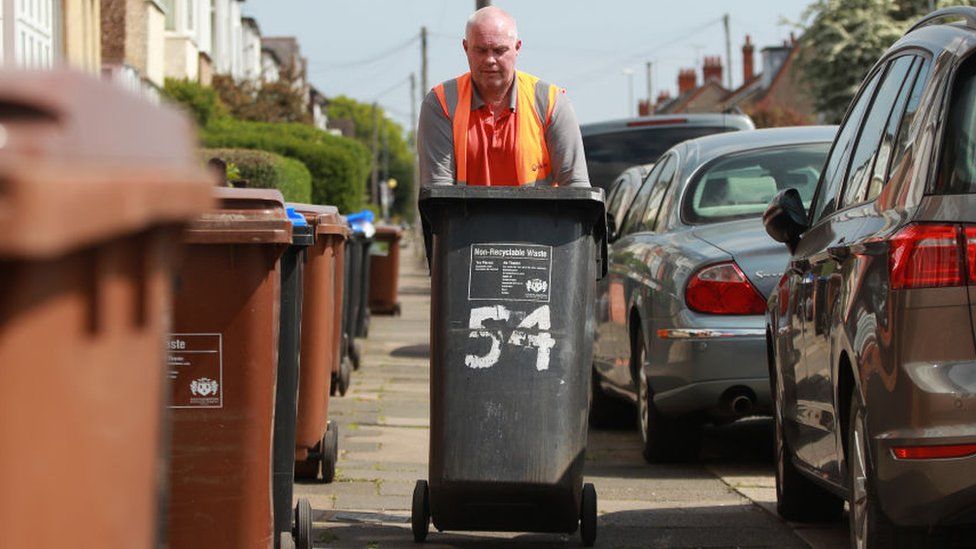 Image source, Getty Images
Image source, Getty ImagesRubbish collection is often an important local election topic
These elections could also be the last big test of the current Westminster government’s popularity ahead of a general election, expected in 2024.
The last time these council seats were contested, in May 2019, the Conservatives lost more than 1,300 seats. Labour lost 82.
At the time, Theresa May was in her final weeks as prime minister, before being replaced by Boris Johnson.
The Conservatives are currently trailing Labour by about 15 points in national voting polls.
When will the results be known?
Results from more than 60 councils in England are expected to be announced overnight, with the rest throughout the day on Friday 5 May.
In Northern Ireland votes are not counted overnight so results will start coming in on 19 May.




